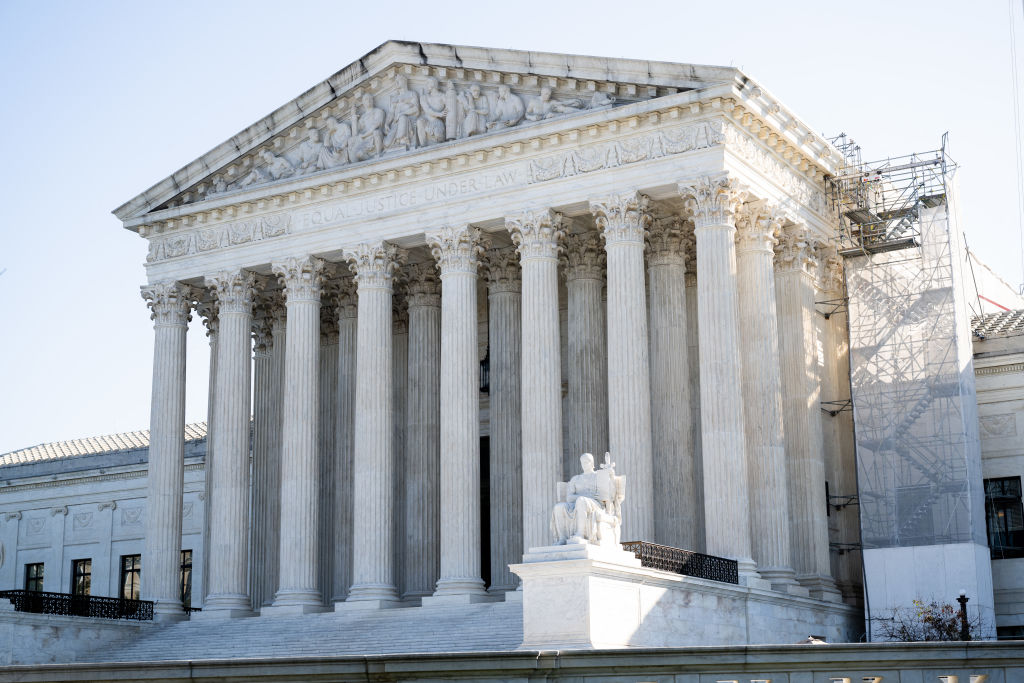No invitation necessary: when the solicitor general weighs in unsolicited
Charging Homeland Security bosses: obstruction of justice and the Supreme Court
SCOTUStoday for Tuesday, February 10
More news
How academic briefs shape Supreme Court decisions
Updated on Feb. 10 at 11:40 a.m.
Empirical SCOTUS is a recurring series by Adam Feldman that looks at Supreme Court data, primarily in the form of opinions and oral arguments, to provide insights into the justices’ decision making and what we can expect from the court in the future.
On June 24, 2022, the Supreme Court issued its decision in Dobbs v. Jackson Women’s Health Organization, overturning the court’s recognition of a constitutional right to an abortion. To justify their opinions in Dobbs, the justices cited six different briefs submitted by scholars. This intense marshaling of academic expertise exemplifies a broader transformation in Supreme Court practice: Justices increasingly turn to such briefs not merely for doctrinal support but for historical practices, empirical claims, and constitutional analysis.
Continue ReadingWhen the Supreme Court abets lawlessness
Cases and Controversies is a recurring series by Carolyn Shapiro, primarily focusing on the effects of the Supreme Court’s rulings, opinions, and procedures on the law, on other institutions, and on our constitutional democracy more generally.
In the first weeks of 2026, we’ve seen two U.S. citizens shot and killed by federal Department of Homeland Security agents in Minneapolis. Anyone who follows the news has seen numerous videos and pictures of DHS agents knocking people to the ground, pulling them out of cars, spraying them directly in the face with pepper spray or other chemicals, arresting them with no warrants, demanding proof of citizenship from people of color (and sometimes then rejecting it), and so on. I detailed some of this conduct in late December. It has not abated.
Continue ReadingIn birthright citizenship fight, Justice Department selectively interprets the original meaning of the citizenship clause
Immigration Matters is a recurring series by César Cuauhtémoc García Hernández that analyzes the court’s immigration docket, highlighting emerging legal questions about new policy and enforcement practices.
Last month, the Department of Justice filed its brief with the Supreme Court in the high-stakes legal fight over birthright citizenship. According to the government, the justices should side with the Trump administration because the president’s executive order faithfully applies the intended meaning of the 14th Amendment’s citizenship clause, which states that all “persons born … in the United States, and subject to the jurisdiction thereof,” are U.S. citizens. Urging the justices to dive into the past, the Justice Department cites 19th-century books, letters, judicial opinions, and even a funeral speech in support of President Donald Trump’s attempt to narrow access to citizenship at birth. But in mining written texts from more than a century ago, the government’s brief plucks phrases that it favors while ignoring the political movement to dramatically expand citizenship in which the 14th Amendment was added to the Constitution.
Continue ReadingSupreme Court allows California to use congressional map benefitting Democrats
The Supreme Court on Wednesday afternoon cleared the way for California to use a new congressional map intended to give Democrats five additional seats in the U.S. House of Representatives. In a one-sentence order, the justices turned down a request from a group of California Republicans that would have required the state to continue to use the map in place for the last several federal elections in the state while their challenge to the map moves forward.
Continue ReadingThe Black Codes must not define America’s fundamental freedoms
Please note that SCOTUS Outside Opinions constitute the views of outside contributors and do not necessarily reflect the opinions of SCOTUSblog or its staff.
In the 2022 case of New York State Rifle Pistol Association v. Bruen, the Supreme Court held that the Second Amendment protects a right to carry firearms in public. It further held that to justify a restriction on firearm-related conduct the government must show that the restriction is consistent with the “Nation’s historical tradition of firearm regulation.”
Continue Reading